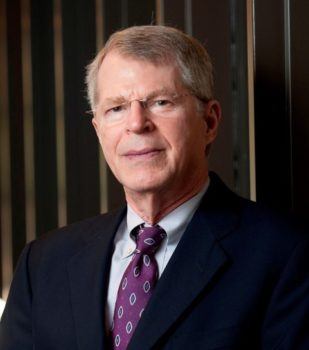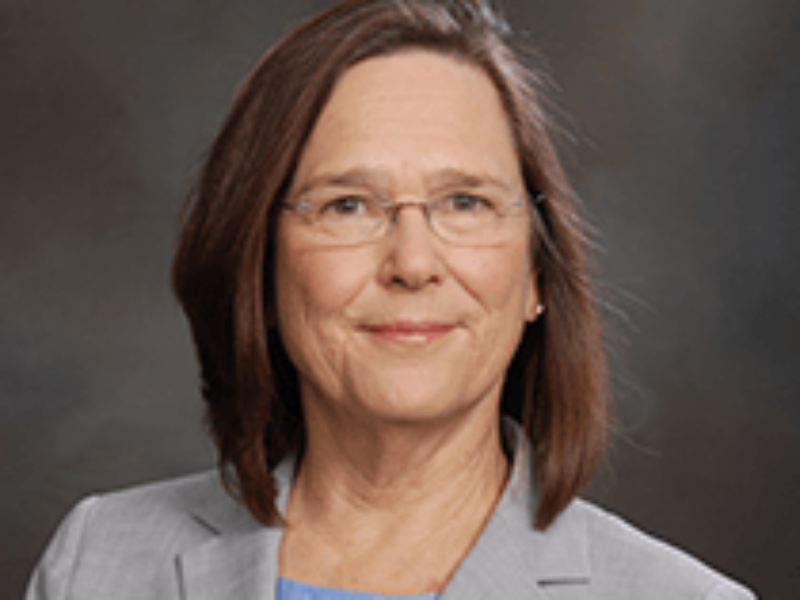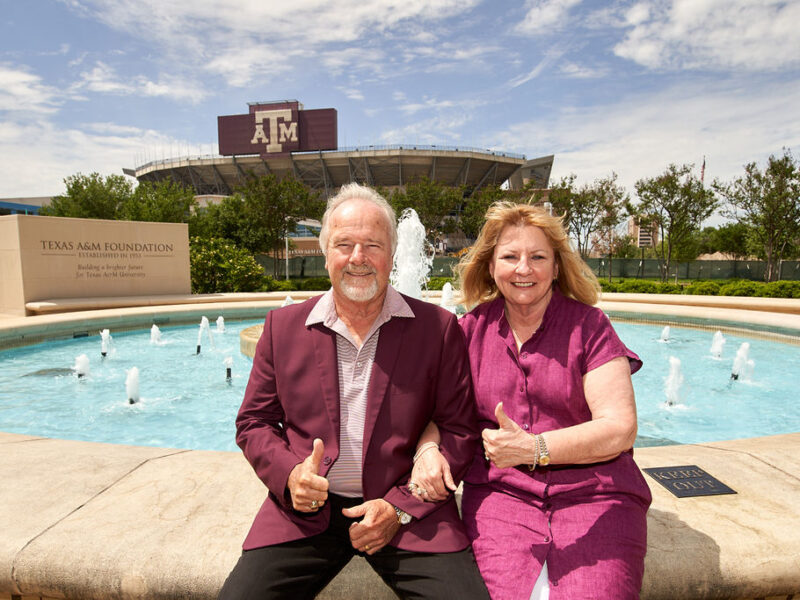Mays Business School Professor Is Texas A&M’s Most-Cited On Google Scholar

The Texas A&M University faculty member most cited on Google Scholar is Mays Business School University Distinguished Professor of Marketing Leonard Berry.
Google Scholar lists Berry with 201,835 citations to date. He is followed by Michael Hitt, university distinguished professor emeritus from the Department of Management at Mays, with 110,295, and Othmane Bouhali, a physicist and director of research computing at Texas A&M University at Qatar, with 102,210. The average for Texas A&M’s 10 most-cited scholars on Google Scholar is 81,125.
About 5,500 scholars — faculty, doctoral students and post-doctoral students at the College Station campus and branch campuses in Galveston and Qatar — have at least one citation on Google Scholar.
Berry said he learned of the ranking when his department head made the announcement during a meeting.
“I was surprised,” Berry said. “I have served on committees for the most prestigious awards at Texas A&M, and always came away filled with awe at what the nominees had accomplished. I was sure it couldn’t be true.”
Berry is a regents professor and holds the M.B. Zale Chair in Retailing and Marketing Leadership. He also is a presidential professor for teaching excellence at Texas A&M and a senior fellow of the Institute for Healthcare Improvement in Boston, where he studies ways services for cancer patients and their families could be improved.
He is the author of 10 acclaimed scholarly books and is only the second person to receive all four major awards in the marketing profession.
Berry, who joined the Texas A&M faculty in 1982 as founder of the Center for Retailing Studies in the Mays Business School, for which he also served as director through 2000, is a pioneer in the field of services marketing.
“When I came to Texas A&M, my discipline did not distinguish between the marketing of goods and services,” Berry said. “Our team at Texas A&M was the first to conceptualize and measure service quality as part of a small handful of scholars around the world determined to create the new field of services marketing.”
Berry said support from his colleagues at Texas A&M was key to the team’s success.
“The work A. Parasuraman and Valarie Zeithaml and I conducted made us outliers, but that was okay,” Berry said. “The marketing faculty supported us as we helped launch this brand-new discipline. I’m not sure that would have been the case at other research universities.”
A sabbatical at the Mayo Clinic in 2001-02 led Berry to study ways to improve quality in the field of healthcare.
“Getting out of my comfort zone of studying commercial services gave me a new perspective on what patients really need,” he said. “I returned to Texas A&M fiercely determined to tackle those problems.”
Since then, Berry says his professional focus has been simple: “healthcare is a service we all need; let’s make it better.”
Berry says that in addition to support from colleagues at Texas A&M, his passion for working on big, real-world problems with experts in other fields contributed to his Google Scholar success.
“Publishing in peer-reviewed academic is hard work, so you might as well work on important problems,” he said. “We should be tackling all of society’s problems from all different scientific perspectives and areas of expertise. And if you’re lucky enough to be one of the first to study that problem in a new way, then your work will be cited.”
Berry also says he has sought to improve his writing skills throughout his many decades as a professor.
“People are more likely to read your work if it is well written,” he said. “That is a lesson I have shared with my co-authors, which include every single one of my doctoral students. I typically collaborate with physicians on articles for medical journals, and I have learned so much from these brilliant clinicians. My citation count is a tribute I share with my collaborators.”
Berry says that if he were just starting out in academia today, he still would focus on the basics of producing quality work in a high-impact area instead of chasing metrics.
“I would advise anyone that if they work hard to do something creative and new and useful, the metrics will follow,” he said. “That has been my guiding north star all along.”
Media contact: Ann Kellett, akellett@tamu.edu





